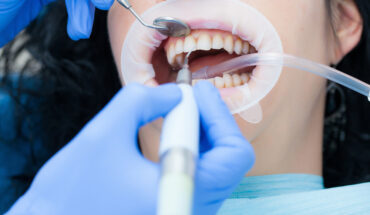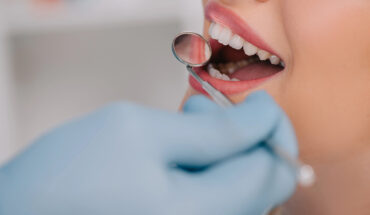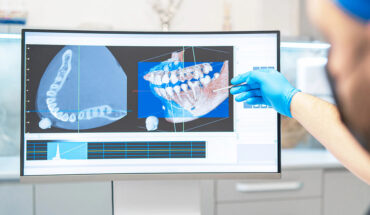
According to Melbourne’s Deakin University, young adults are less likely to buy sugar-sweetened beverages that include clear health warnings of the damage sugar causes: lets face it, tooth decay, obesity, and type 2 diabetes are just shorthand fear triggers really. Nobody wants to be the fat one in the corner at a party shooting up insulin and scoffing breath mints.
The health issues are real; we know that. We’ve been told it for decades now. Longer, really, if you count from the first known mention of diabetes symptoms as 1552 BC. That’s three-and-a-half thousand years. 1.3 million days. If they were Aussie dollars you could buy a reasonable house in Mullumbimby for that. Anyway it happened when Hesy-Ra, an Egyptian physician, documented frequent urination as a symptom of a mysterious disease that also caused emaciation. Around the same time, ancient healers noted that ants seemed to be attracted to the urine of people suffering this disease.
Here we are a few thousand years later. We know diabetes more scientifically a medically than we did then, and we might well just be standing around watching ants. According to a small group of Perth dentists, we continue manufacturing and consuming crap that really is just crap; while really not giving a crap with the world and our health turning likewise.
The two major sources of refined sugar are sugarcane and sugar beet because chemically speaking, they both contain 99.95% sucrose. The rest is just water and impurities.
They require different refining methods, but both these monoculture crops by-product biofuels and bioplastics, and create massive ecological damage. Vast amounts of irrigation, fertilisers and fossil fuel energy are required, and all but 5% of sugar beet is genetically modified for greater yield. Like all industrial agriculture – of which there is much – there’s biodiversity and soil fertility loss, with increased and continuing environmental pollution and damage.
We keep pretending we haven’t noticed how unsustainable it is; just standing around, watching ants and sipping a can of cold drink from the local café.
In sleepy Adelaide cafes can be more healthy and it’s admirable that in an adjoining state, Perth dentists continue informing and educating us on oral health. It’s oxymoronic that dental professionals are essentially telling us how to not give them money. Maybe oxymoron is the deafening silence of sweet misery when oxyacetylene torches a moron’s backside.
Bad oral health affects every aspect of our system: physically, mentally and spiritually. You know – fatty wallflower over there in blood glucose land, more depressed than an arse print in a couch.
The Melbourne study, The Effect of Sugar-Sweetened Beverage Front-of-Pack Labels on Drink Selection, Health Knowledge and Awareness: An Online Randomised Controlled Trial was presented at the European Congress on Obesity in Austria in 2018. While a Melbourne university is influencing the world, Melbourne dentists are also influencing their Richmond cafe strip.
You’re talking an item with a 40-70% profit margin. Who’s gonna drop that from their high-overhead, high risk, and very competitive business?
It’s a lot of work, a lot of people, and another angle just to tell us what we already know and basically refuse to acknowledge.
They’re not the only ones. The faculty of Dental Surgery at the Royal College of Surgeons urges employers to tackle workplace “cake culture” that contributes to poor oral health and the obesity epidemic. In a large company, birthday and employee celebration cakes can be a regular and almost daily occurrence. Each time sugar is consumed it fuels acid formation, which softens tooth enamel and leads to decay.
The faculty is urging companies to swap biscuits for fruit and nuts in meetings, scrap the most sugary treats from vending machines, and make healthy options more visible and available.
Specialists specialising in special aspect of the art of choosing to compromise your own health with sugar. Dentists about teeth. Cardiologists about the heart. Hepatologists about the liver. Endocrinologists about obesity. Around and around it goes; where it stops nobody knows.
Healthy eating culture change is almost useless if it’s just in offices and cafés – it has to be a conscious and permanent lifestyle change. One made by an adult using their adult mind, rather than the one that atrophied as an eight-year-old with a handful of pocket money in the local lolly shop. It just got taller and went to the café instead. Then bored and dissatisfied back in the office, it opened the Tim Tams while the cheesecake was being sliced. In England it was chocolate Hobnobs; while they waited in admissions for the other 63,999 over-18s needing hospitalisation for tooth decay or gum disease treatments.
Old news I guess, if that’s what 2016 is to you. I hate to think where 1552BC might be; maybe that place where everything old is new again.
Homo sapiens. We’re single-minded saps, really.
The widespread claim is that there’s a minefield of confusion for the person trying their very best to make healthy choices. Like only astrophysicists and philosophers know the nutritional difference between an almond and an almond croissant.
Wake up, grow up, and go Yoda on soda: Do or do not. There is no try.
Sugar-free gum, sweets and soft drinks marketed as healthy alternatives also damage teeth, cause gastric problems and are unlikely to promote weight loss. They simply rely on consumers’ blind confidence that such products are a good thing. Sugar or sugar-free, fruit flavourings erode the enamel covering of dentine and ultimately, teeth dissolve.
Like a sugar cube in coffee.




